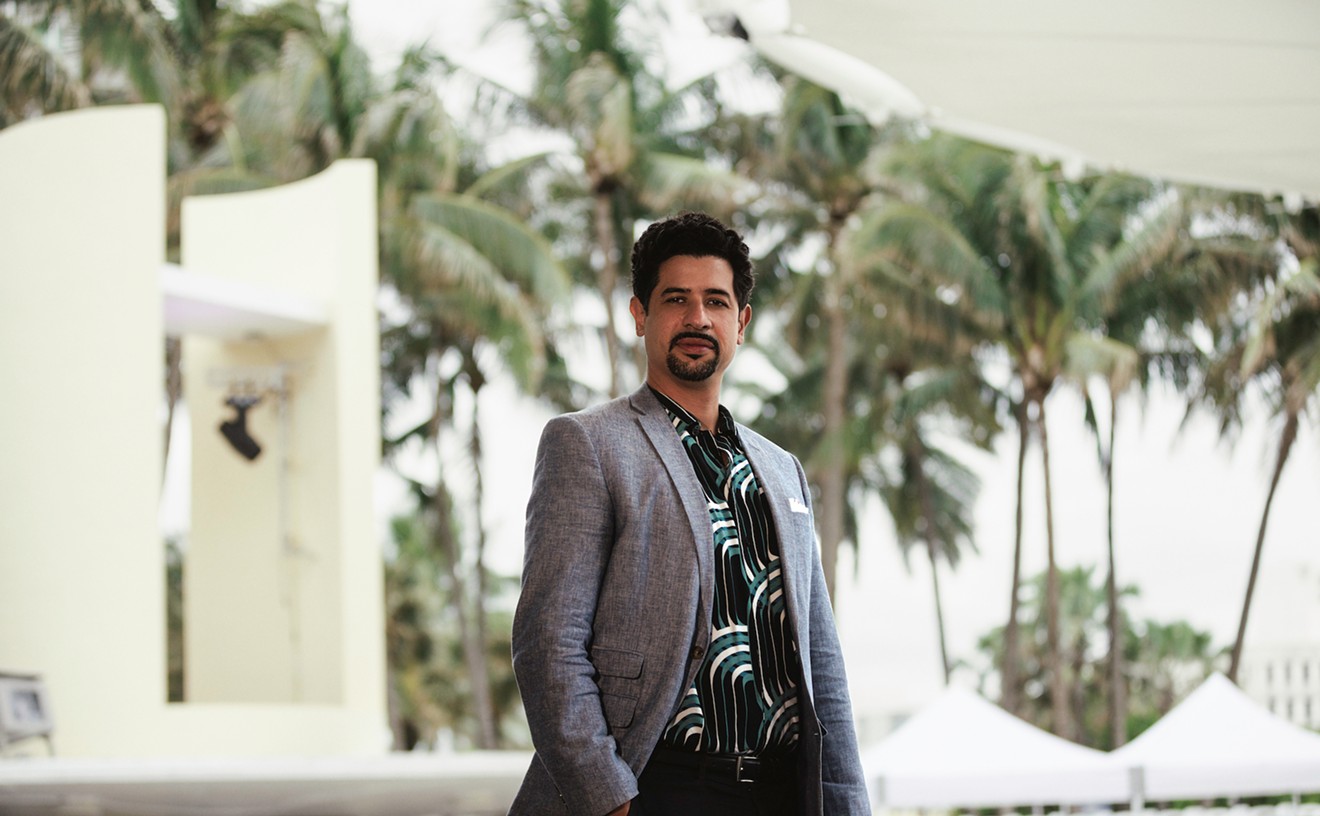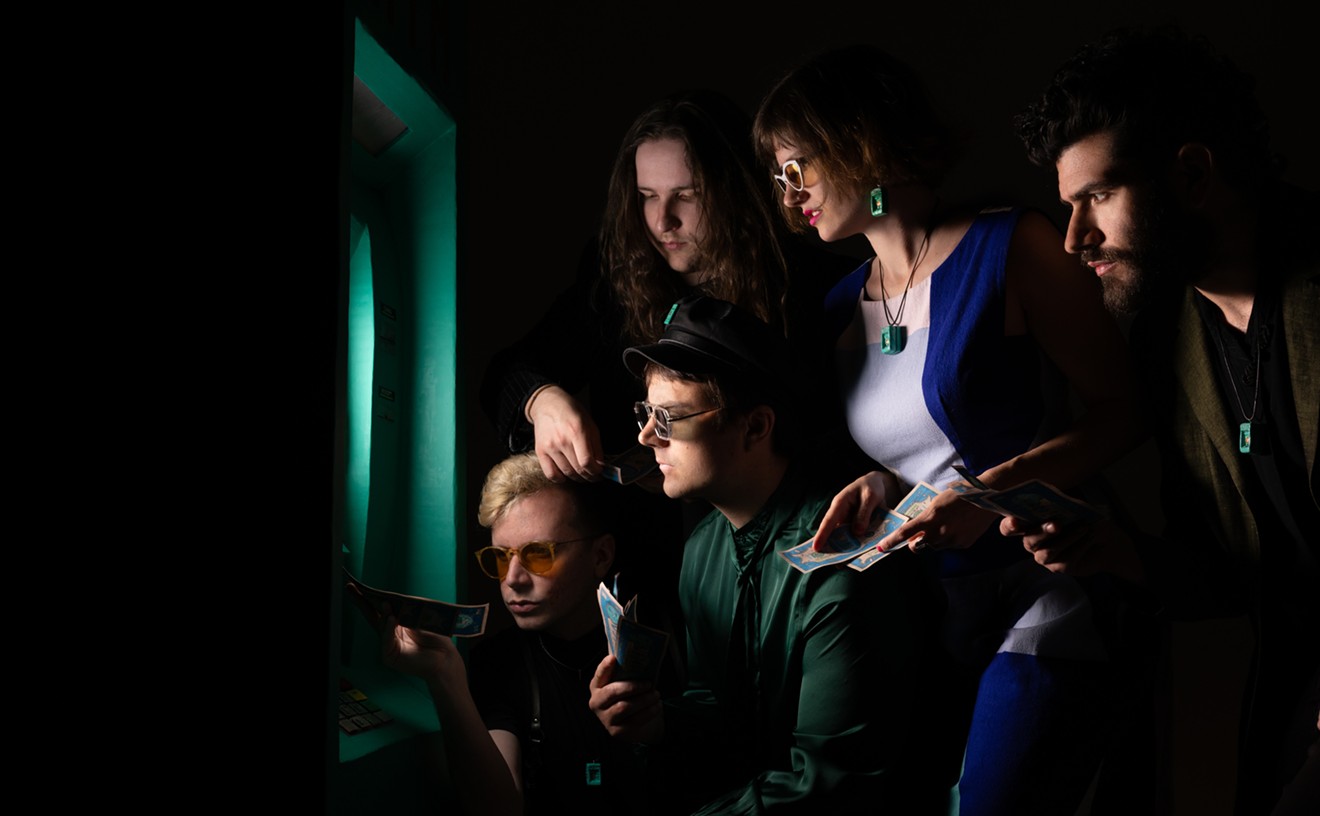Today's Hispanic youth pulsate to the sounds of Dominican merengue and bachata, to the dancehall hybrid reggaeton, to Latin pop and Puerto Rican hip-hop. It's a musical sensibility foreign to Oscar Hernandez, pianist, founder, and musical director of Spanish Harlem Orchestra.
"I think it's good. Every generation has its own music. It's reflective of that. I don't begrudge it. But it's not my style of music. I don't see the long-term credibility of that music.... But I understand how the youth like it," says Hernandez.
The New York-based, 13-member Spanish Harlem Orchestra has helped spearhead a revival of Afro-Cuban and "hard salsa" (salsa dura) music worldwide since recording its 2002 Latin Grammy-nominated debut CD, Un Gran Dia en el Barrio (Rope-A-Dope Records). The recording also won Latin Billboard's Salsa Album of the Year award in 2002. That success bred more laurels when the orchestra's sophomore CD, Across 110th Street, won a 2004 Latin Grammy for Best Salsa Album. Now the band is riding a new wave of critical acclaim for its third disc, United We Swing, released in May on Six Degrees Records.
In the past, SHO has concentrated on reinterpreting Afro-Cuban and hard salsa standards. As a result, many critics, while lauding the group's musicality, have cited its lack of original compositions. The band has addressed these concerns on United We Swing; nine of the 13 tracks are original songs.
"It's important first and foremost to make a really good musical production, one that looks at all the different angles," Hernandez says. "Within Spanish Harlem Orchestra, we have excellent arrangers that have their fingers on the pulse of this music. I include myself, because I arrange almost half of the material, and we have excellent musicians to play those arrangements and songs."
That roster reads like a veritable who's who of Latin music veterans, musicians who have backed up salsa's big names — Tito Puente, Héctor Lavoe, Willie Colón, Ruben Bladés, Celia Cruz, Ray Barretto. The group's three vocalists — Ray de la Paz, Willie Torres, and Marcos Bermudez — sing in close harmony to the rhythms of rumbas, cha-chas, and guaguancós. And SHO's arrangers include Puente's longtime pianist, 78-year-old Gil Lopez, along with Sonny Bravo, Angel Fernandez, and José Febles. Paul Simon, too, contributed a composition to United We Swing, "Late in the Evening/Tarde en la Noche," on which he also sings.
"It's not about a singer. It's not about one instrumentalist. It's about 13 people who are excellent musicians and, in our case, three vocalists, having the opportunity to create and perform on a high musical level. Those are the elements that we think are important. That's why we've been successful," Hernandez says.
Hispanic baby boomers have long embraced and understood the Afro-Cuban music tradition from the Forties; the great orchestras of Machito, Tito Puente, and Tito Rodríguez in the Fifties; and the Sixties and Seventies salsa of Puente, Celia Cruz, Ray Barretto, Eddie Palmieri, El Gran Combo, La Sonora Ponceña, and others. But today hard salsa gets little airplay over mainstream and Hispanic radio stations in the States. Still, there's been a resurgence — salsa nights are springing up in clubs nationwide, and some young people are learning the dance steps and embracing its driving rhythms, improvisation, and musicality.
Hernandez is excited about re-educating youth about their vibrant Afro-Cuban heritage. The day before Spanish Harlem Orchestra's Miami concert, the group will conduct workshops in hard salsa for local high school and university bands at Miami Dade College.
"We lead by the example of our musicianship and professionalism. Hopefully it captures the right people," Hernandez says. "We want to be accessible to young people, and we do anything we can to educate the youth. It's important that the youth be educated about this music and that they can identify with someone in terms of being a Latino."
Hernandez, age 53, grew up in a large family of Puerto Rican extraction in the South Bronx. At age 11, he joined the community Boys Club, where he took up the trumpet. But he struggled with the brass instrument's technical demands, so a teacher encouraged him to study the piano.
After receiving a piano as a gift at age 14, Hernandez went on to play that instrument in neighborhood bands before turning professional. Working with Ray Barretto for six years and serving as Ruben Bladés's musical director from 1983 to 1996, Hernandez laid the foundation for his leadership of SHO.
Hernandez's resumé also includes stints with Tito Puente, Celia Cruz, Ismael Miranda, Oscar D'León, and Johnny Pacheco. Fifteen years ago he produced a salsa record, Dance City, for dance instructor and bandleader Eddie Torres. It sold only three copies, according to Hernandez, but the New York Times gave it a rave review, which was read by none other than Paul Simon. After listening to the recording, Simon tracked down Hernandez and hired him as musical director for his unsuccessful Broadway show, Capeman. Simon's continued admiration of Hernandez and SHO has led to his contributing to United We Swing.
Meanwhile Hernandez hopes his move to Los Angeles will provide more opportunities for SHO. Their only trajectory, as he sees it, is upward.
"We're building in terms of our notoriety, in terms of who we are, in terms of more people recognizing what we're about and the importance of what we're doing," he says. "I do think there is an importance that goes beyond the music itself."










